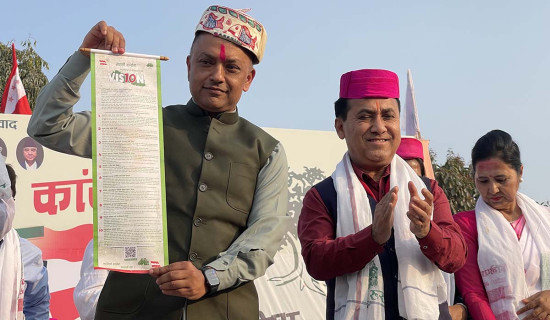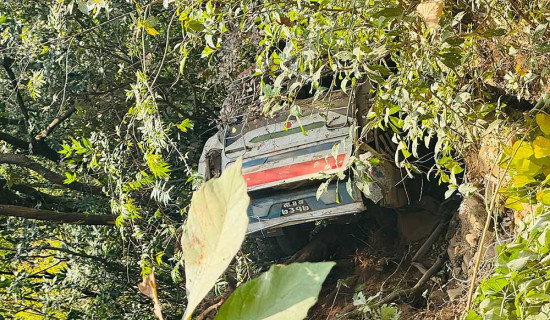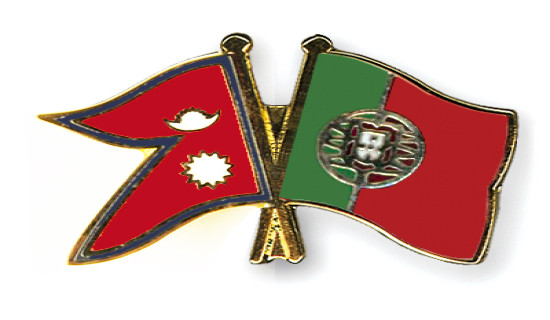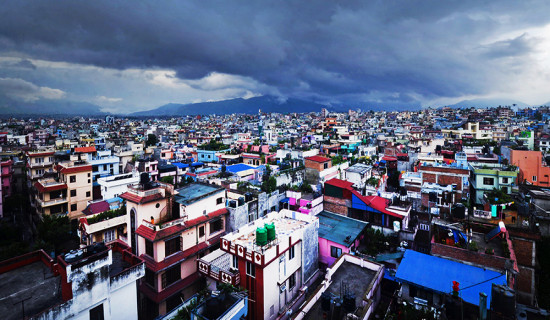- Thursday, 19 February 2026
Road To Success Of Gurkha Justice Campaign
Dr. Mulibir Rai,
The Anglo-Nepal relationship began in the middle of the Anglo Nepal war from 1814 to 1816. One particular battle event led two adversaries to shake hands and befriend each other. Lieutenant (Later General) Frederick Young did not flee the battle with his men. Instead, he became captive to the Gorkhalis. As he was asked why he had not run away. His stark and manly reply – "I have not come so far to run away," astonished the Gorkhali Army. They treated the officer like a guest rather than a captive.
The hostility turned into friendship at once. While the war was still scrambling to its equivocal conclusion in 1816, the formation of the Gurkha regiments, not one but three, was already underway in mid-1815 at Young's request, approved by General David Ochterlony. Hence, Young bragged, “I went in as one man and came out as three thousand.” The number continuously grew throughout the century until the cold war settled in the early 1990s.
Gurkhas' Valour
Ever since, the Gurkhas’ valor resonated in every battle, from the Pindari War in 1817 to the recent Operation Herrick in Afghanistan. They achieved over three thousand medals for bravery, including thirteen Victoria Cross at the cost of over 44,000 lives. Numerous eulogies and testimonials from the British Commanders permeate the British military literature.
Among them is a famous statement by former Indian Army Chief of Staff Field Marshal Sam Manekshaw: "If a man says he is not afraid of dying, he is either lying or he is a Gurkha." Some critics may find this overly magnified version of appreciation of the Gurkhas’ selfless commitment to building the British Empire. However, its authenticity can be validated only by those British commanders, including Major James Rutherford Lumley, father of a renowned British actor Juana Lumley, who would not have survived the battle had the Gurkhas not been there to protect them.
Only the biblical texts can appropriately put this selfless phenomenon: "Greater love has no one than this, that he lays down his life for his friends." Professor Sir Ralf Turner remembers his Gurkha comrades, "uncomplaining and enduring hunger and thirst and wounds, and at the last, your unwavering lines disappear into the smoke and wrath of battle. Bravest of the brave, most generous of the generous, never had a country more faithful friends than you."
Unfortunately, with the ending of the wars, the friendship abruptly ended unilaterally. Gurkhas were told, ‘Aba ladȃi sakiyo, tapaiǹharu januhos; War has ended, now you go home." Gurkhas simply grinned and left for a home virtually empty-handed, leaving thousands of fellow Gurkhas dead behind. Yet, Gurkhas' service in the British Army has continued with the same loyalty and courage throughout the centuries. Ironically, the British who invariably portrayed the Gurkhas as fearless and peerless soldiers in literature never made even the slightest effort to honour their own words in practice. It has been over two decades since the Gurkhas began the Gurkha justice campaign making a gentle demand for equality in pay and pensions.
Approximately 40,000 Gurkhas had joined the movement in the 1990s. The number gradually dwindled to less than 15,000 now, meaning many Gurkhas died without the pension, which they sincerely hoped for decades. More than 70,000 Gurkha offspring are in the Middle East, Malaysia, and other South-East Asian parts, toiling for mere subsistence. Had the British Government taken sensible and appropriate action by offering equal pay and perks to the Gurkhas, their offspring would have certainly been in a better position as Gurkhas could have afforded a good education.
For the UK Government, the demise of many hopeful Gurkha veterans and their offspring’s travails could be nothing. Still, it is evident exploitation of the salt of the earth and a shameful failure of the British Government, whom we once considered the world's empire and champion of human rights, to deliver justice to the demised ones and their offspring. As the UK Government’s injustice to the Gurkhas continues, the Gurkhas recall the morbid history of their side. During the great wartime, there was no household in the hills which would not have lost at least one family member in the war. Furthermore, the study shows that as the British began recruiting the best and bright youths of the indigenous groups from the hills of Nepal into the British army, there was a massive brain drain among these groups.
As a result, their representation in Nepalese politics, administration and bureaucracy remained ominously empty and dangerously absent. Moreover, the British Government's ill-favored behaviors toward the Gurkhas added insult to injury, which is far more painful than the one they sustained from bullets on the battlefield.
Justice Campaign
The Gurkha justice campaign initiated by the GEASO (Gurkha Ex-Serviceman Organisation) in the early 1990s took well over a decade to pulsate in the British parliament, even though the movement had begun to yield some results in installment in 2004. At least not until Peter Carroll, a Liberal Democrat political party member whom Joanna Lumley calls a “driving energy” actor Joanna Lumley herself and the Liberal Democrats’ Leader Nick Clegg drove full pelt 2009, was the UK government serious about grievances of the campaigners, the GAESO and BGWS.
As a result, the UK Government announced the settlement rights for the Gurkhas. The Guardian wrote that “The move comes as a major victory for The Sun’s crusade for Gurkha justice” and it was celebrated across the Gurkha community both in the UK and Nepal. Lumley famously remarked that Gordon Brown was "a brave man who made a brave decision on behalf of the bravest of the brave." She shed tears of joy. Martin Howe, one of the legal team representing the Gurkhas, David Enright and many MPs openly commented on themselves as proud MPs who felt proud to fight for the brave Gurkhas' settlement right.
It was indeed a watershed moment in the history of the Gurkhas in the British Army. However, unfortunately, these proud MPs had little or no knowledge that whilst the “historic announcement” was being made in the British Parliament, thousands of veterans were fighting the poverty, disease and injury they sustained on the battlefield. The new ‘historic announcement’ on pension applied to those who joined the British Army after 30 September 1993.
To that effect, for the Gurkhas, it was just a half-done job; hence, the campaign continued. One of the campaign groups, BGWS filed the case with the ECHR (European Court of Human Rights). The court's verdict was delivered: The Court was satisfied that Gurkha soldiers had been treated differently from other soldiers in the British Army as concerned their entitlement to a pension and that the difference in treatment could be regarded as less favourable.
Court Battle
Furthermore, given the changes to the Gurkhas' situation, the Court accepted that by 2007- the date of the offer to transfer-Gurkha soldiers had been in a similar situation to other soldiers in the British Army. However, the Court considered that any difference in treatment on grounds of nationality had been objectively and reasonably justified. In particular, the cut-off point, 1 July 1997, for different treatment of accrued pension had not been arbitrary as it represented the transfer of the Gurkhas had started forming ties with the country.
Likewise, the Court considered that any difference in treatment based on age had also been objectively and reasonably justified.
Given the above statement made by the court, there seemed to have no points from the aggrieved party been taken into consideration; hence the verdict resembled nothing but a foregone conclusion rather than the justice made out of a thorough investigation. However, the BGWS somehow appeared to be convinced by the verdict.
The remaining campaign groups, including GAESO, UBGAE, and other freshly formed groups, with added, so-called 13 points demands, pressed on to finish the unfinished business. A founding leader of Satyagraha Gyanraj Rai staged the third round of hunger strikes in London. Staging a hunger strike is considered not an effective practice to achieve objectives unless, like Nelson Mandela, a global icon of freedom puts, the outside world learns of it.
From the Anglo-Irish war in the early 18th century to the recent insulate Britain campaign, the track records show that the hunger strikes seemed to have little impact on success as the British Government knows how to wheedle strikers. We have even witnessed a similar event in Nepal. Dr Govinda K.C. staged hunger strikes on multiple occasions demanding corrections in the Government’s bureaucratic policies within the medical sector, including affordable tuition fees for students from the working-class background, all to no avail. Governments worldwide have a universal template to deal with hunger strikes - make a promise first and break it later.
Hence, the next move of the British Government is almost visible that it will propound its formulaic plan that is not to seek retrospective amendment in pension. The letter dated 17 March 2022 from Lt Gen Wardlaw, Colonel Commander of the Brigade of Gurkhas, to Major (Retired) Bhimbahadur Gurung, Chairman of the RAN, is a cue to the outcome of impending talks between the so-called GtoG (Government to Government). This article, by no means, alludes that the Gurkhas will have the same fate - grinning and bearing it; however, it strongly suggests that there are some preliminary actions to be taken and precautions to be considered to achieve success.
Setting theoretical and analytical discourse on how the Gurkhas have to prepare for the justice battle aside, the most critical and immediate action is to be united unconditionally. It is a no-brainer that "united we stand divided we fall". This is the universal truth. Scholars have tested it on politics, psychology, social studies, physics and biology. So much so that it has been examined on clonal integration and its relationship to invasiveness.
Integration
The study demonstrated the "general performance benefits of clonal integration, at least in the short term, and suggest that clonal integration contributes to the success of clonal plants." No logic can and will refute this truth/theory. Unfortunately, the Gurkhas seem to have ignored the fact that division leads only to demise for we see at least five different Gurkha campaign groups heading to the same destination - justice.
Some groups have a louder voice for dignity and integrity than others. They claim that the demand for dignity and integrity will be fulfilled only if Gurkhas are treated as equally as their British counterparts. Other groups too have the same demand - equal treatment.
It is common to have different opinions, but only a few find a wise way to churn those opinions and produce cream beau ideal. In the Gurkhas' context, the objective, vision and mission are clear, the direction is straightforward, the paraphernalia is in place, and the vehicle is ready. Furthermore, the setting from which the Gurkhas are launching the assault is oriental, and the position in which the Gurkhas are is subaltern. Therefore, the author strongly believes that the Gurkhas' unity is "the key" to securing victory over injustice.
(A former Gurkha British soldier, Dr. Rai holds a PhD and currently teaches at a London-based college)



-original-thumb.jpg)


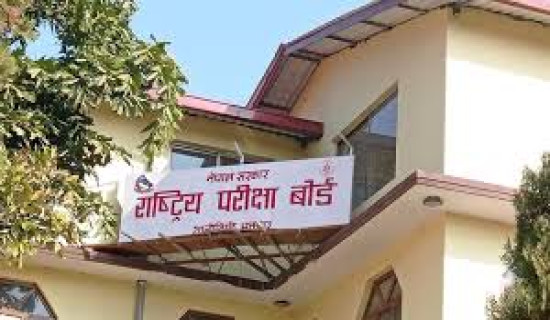

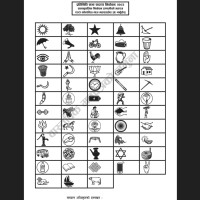
-original-thumb.jpg)
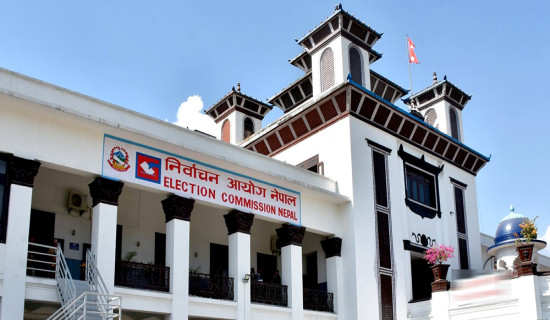
-original-thumb.jpg)

